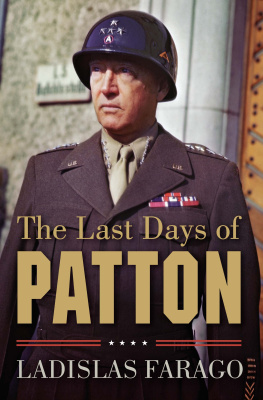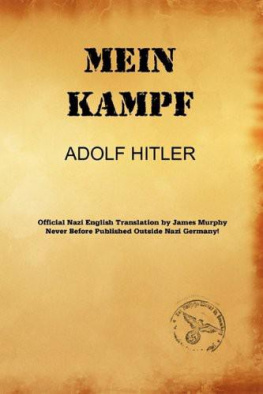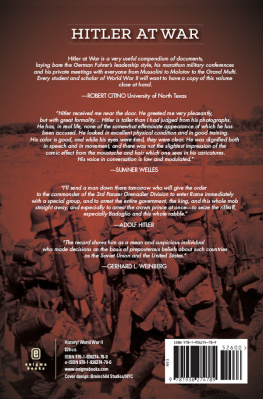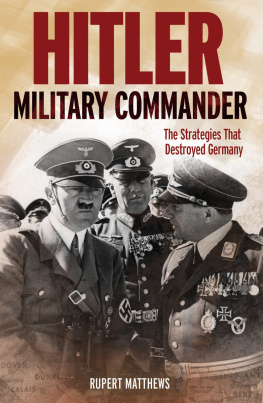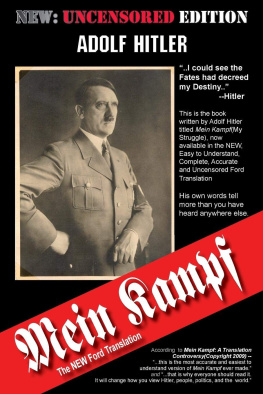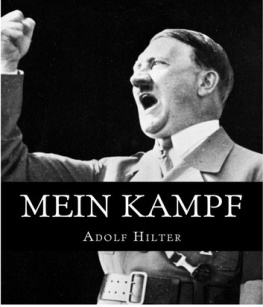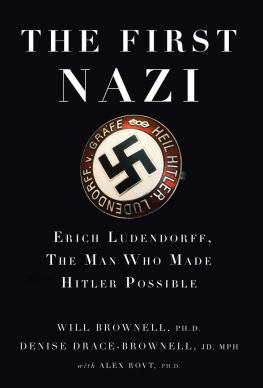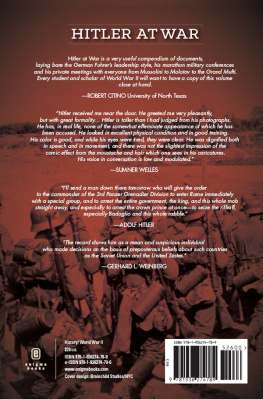Ladislas Farago - The Axis Grand Strategy: Blueprints for the Total War
Here you can read online Ladislas Farago - The Axis Grand Strategy: Blueprints for the Total War full text of the book (entire story) in english for free. Download pdf and epub, get meaning, cover and reviews about this ebook. year: 2018, publisher: Stackpole Books, genre: Politics. Description of the work, (preface) as well as reviews are available. Best literature library LitArk.com created for fans of good reading and offers a wide selection of genres:
Romance novel
Science fiction
Adventure
Detective
Science
History
Home and family
Prose
Art
Politics
Computer
Non-fiction
Religion
Business
Children
Humor
Choose a favorite category and find really read worthwhile books. Enjoy immersion in the world of imagination, feel the emotions of the characters or learn something new for yourself, make an fascinating discovery.

- Book:The Axis Grand Strategy: Blueprints for the Total War
- Author:
- Publisher:Stackpole Books
- Genre:
- Year:2018
- Rating:4 / 5
- Favourites:Add to favourites
- Your mark:
The Axis Grand Strategy: Blueprints for the Total War: summary, description and annotation
We offer to read an annotation, description, summary or preface (depends on what the author of the book "The Axis Grand Strategy: Blueprints for the Total War" wrote himself). If you haven't found the necessary information about the book — write in the comments, we will try to find it.
The advent of Adolf Hitler has Germanys supreme leader marked the inauguration of the deliberate plans for world domination by the Third Reich. These plans were not secret; other nations simply refused to take them seriously. They followed the tradition of one hundred years of German military thinking form Clausewitz to Ludendorff. They were implicit in Mein Kampf. During the years from 1933 to 1939 they were worked out in detail by those who today are in charge of the Nazi armies. These writing, in fact, contain the Blueprints for the Total War. Now, for the first time, they have been assembled, translated and made available to all who want to understand the nature of the enemy with whom they are engaged in a life and death struggle. The Axis Grand Strategy describes the plan for modern war from the earliest political and psychological preparation to the ultimate campaign of military terrorism and destruction. The book discusses the building of the modern armyan army which will make full use of all modern technical advance and which will develop the strategy of the irresistible, lightning onslaught. The duration of the armed attack, the piercing of modern fortifications, the co-ordination of aircraft and armed forces, the grand strategy of the large-scale offensivethese and many other military subjects are fully discussed here. These discussions provide the chapter-and-verse authority for the actual campaigns as waged in Poland, Belgium, France, Africa, and Russia.
The grand strategy, however is not confined merely to military ends. For total war in the Nazis scheme of thinking and acting means utilization o political and economic weapons, fifth column penetration and geopolitical strategy that reached far beyond Europe to the lands boarding the great oceans. One writer, in fact, in discussing the Far Eastern strategy actually predicts the attack on Pearl Harbor.
The Axis Grand Strategy is a book for all who as civilians or soldiers are determined to play an intelligent part in the total war which is now ours.
Ladislas Farago: author's other books
Who wrote The Axis Grand Strategy: Blueprints for the Total War? Find out the surname, the name of the author of the book and a list of all author's works by series.

